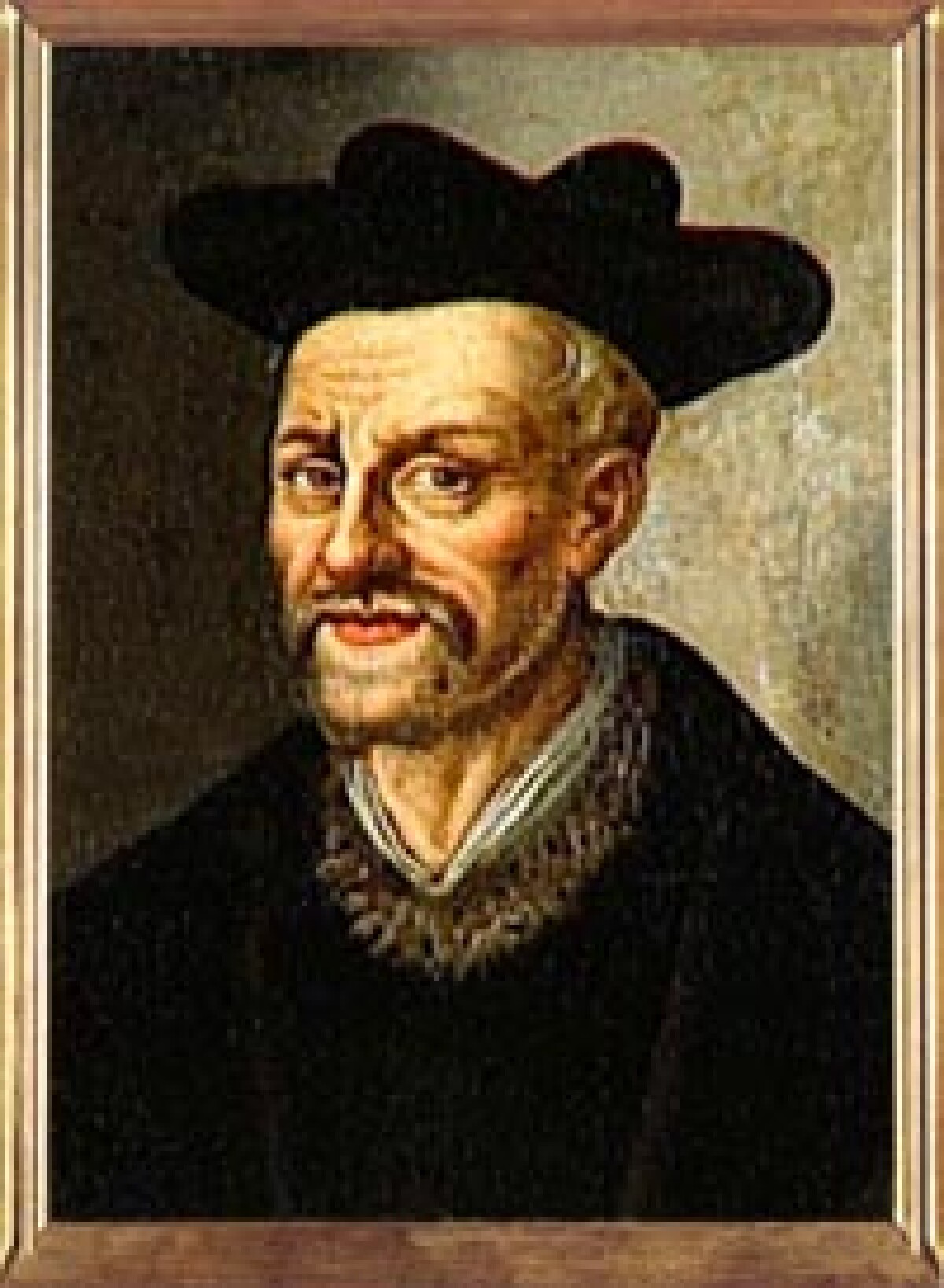François Rabelais
Although neither the place nor date of his birth is reliably documented, and some scholars put the date as early as 1483, it is probable that François Rabelais was born in November 1494 near Chinon, Indre-et-Loire, where his father worked as a lawyer. La Devinière in Seuilly, Indre-et-Loire, is the name of the estate that is claimed to be the writer's birthplace and houses a Rabelais museum.
Rabelais was first a novice of the Franciscan order, and later a friar at Fontenay-le-Comte, where he studied Greek and Latin, as well as science, philology, and law, already becoming known and respected by the humanists of his era, including Guillaume Budé. Harassed due to the directions of his studies, Rabelais petitioned Pope Clement VII and was granted permission to leave the Franciscans and enter the Benedictine order at Maillezais, where he was more warmly received. Later he left the monastery to study at the University of Poitiers and University of Montpellier. In 1532, he moved to Lyon, one of the intellectual centres of France, and not only practiced medicine but edited Latin works for the printer Sebastian Gryphius. From 1540, François Rabelais came to Gryphius to publish his translations of Hippocrates, Galen and Giovanni Mainardi. As a physician, he used his spare time to write and publish humorous pamphlets which were critical of established authority and stressed his own perception of individual liberty.
Using the pseudonym Alcofribas Nasier (an anagram of François Rabelais minus the cedille on the c), in 1532 he published his first book, Pantagruel, that would be the start of his Gargantua series. In this book, Rabelais sings the praises of the wines from his hometown of Chinon through vivid descriptions of the "eat, drink and be merry" lifestyle of the main character, Pantagruel, and his friends. Despite the popularity of his book, both it and his prequel book on the life of Pantagruel's father Gargantua were condemned by the academics at the Sorbonne for their unorthodox ideas and by the Roman Catholic Church for their derision of certain religious practices. Rabelais's third book, published under his own name, was also banned.
With support from members of the prominent du Bellay family, Rabelais received the approval from King François I to continue to publish his collection. However, after the king's death, Rabelais was frowned upon by the academic elite, and the French Parliament suspended the sale of his fourth book.
Rabelais traveled frequently to Rome with his friend Cardinal Jean du Bellay, and lived for a short time in Turin with du Bellay's brother, Guillaume, during which François I was his patron. Rabelais probably spent some time in hiding, threatened by being labeled a heretic. Only the protection of du Bellay saved Rabelais after the condemnation of his novel by the Sorbonne. du Bellay would again help Rabelais in 1540 by seeking a papal authorization to legitimize two of his children (Auguste François, father of Jacques Rabelais, and Junie). Rabelais later taught medicine at Montpellier in 1534 and 1539.
Between 1545 and 1547, François Rabelais lived in Metz, then a free imperial city and a republic, to escape the condemnation by the University of Paris. In 1547, he became curate of Saint-Christophe-du-Jambet and of Meudon, from which he resigned before his death in Paris in 1553.
There are diverging accounts of Rabelais' death and his last words. According to some, he wrote a famous one sentence will: "I have nothing, I owe a great deal, and the rest I leave to the poor", and his last words were "I go to seek a Great Perhaps." One 'last words' reference work provides at least four distinct historical claims to his last words (and additional variations of these) – While many include the phrase "un grand peut-être" ("a Great Perhaps") – all are listed as "doubtful" due to lack of documentation. Additionally some sources examined for Rabelais’ last words cite Cardinal du Bellay; others cite Cardinal de Chatillon creating further confusion.
Share:









